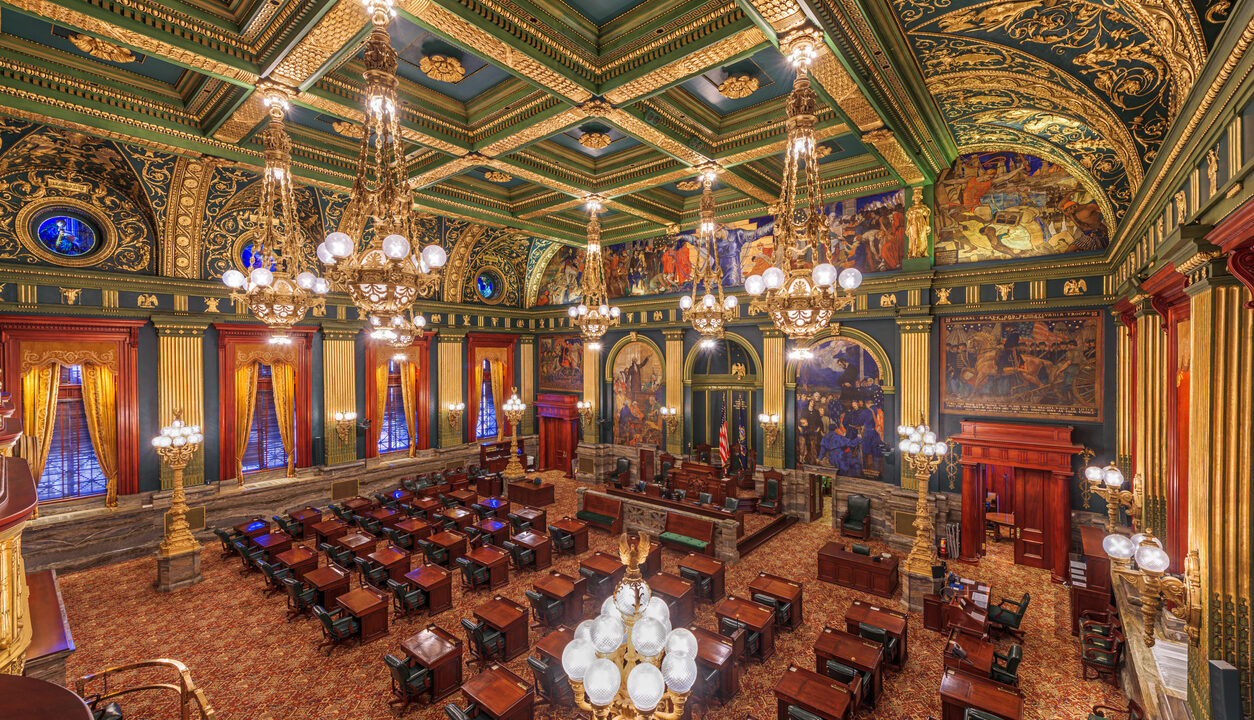Media

New Survey Shows Overwhelming Support for Bipartisanship in Pa. Budget Process
Harrisburg, Pa., July 2, 2024 — As Gov. Josh Shapiro failed to enact the 2024–25 Pennsylvania budget by the June 30th deadline, voters overwhelmingly support increased bipartisanship in the budget process, according to a new Commonwealth Foundation “Common Ground in the Commonwealth” statewide survey of Pennsylvania voters.
“Amid another state budget impasse, Pennsylvanians are looking to their elected officials to reach a bipartisan budget agreement, and they expect Governor Shapiro to step up as a leader in finding common ground with the legislature to get the job done,” said Commonwealth Foundation Senior Vice President Erik Telford.
According to the June survey, 74 percent of voters—including more than 70 percent of Democrats, Republicans, and independents—believe Shapiro “should play a more active role brokering a bi-partisan deal to keep the state budget on track.”
These results come on the heels of a recently released Commonwealth Foundation analysis that finds Shapiro is the least productive Pennsylvania governor in at least 50 years. Despite having a full-time legislature, Shapiro has signed the fewest bills of any governor with a divided government—calling into question his effectiveness and leadership.
A majority of voters—by a 20-point margin—oppose Shapiro’s budget proposal, which was dead on arrival in the legislature. But there are many areas where Shapiro and lawmakers can find common ground backed by the broad support of Pennsylvania’s electorate. “The place to start,” Telford said, “is with policies that have overwhelming levels of support among voters across the political spectrum.” According to the survey, these include:
- 75 percent support establishing scholarships for low-income students in Pennsylvania’s worst-performing schools to help pay for tuition to another K–12 school (known as Lifeline or PASS Scholarships).
- 78 percent support expanding tax credit scholarships, which allow businesses to receive tax credits for donations to nonprofit organizations that provide scholarships to low-income and middle-income children.
- 78 percent support cutting the Pennsylvania personal income tax rate from 3.07 percent to 2.8 percent.
- 77 percent believe Pennsylvania Turnpike tolls should only be used to maintain the turnpike and reduce its debt, rather than fund mass transit programs in places like Philadelphia.
- 76 percent believe Pennsylvania school districts should be required to use excess reserves before raising taxes to increase funding.
Discontent with full-time legislature: 81 percent believe state lawmakers should only be paid for the days they conduct official business. While 81 percent also believe that full-time lawmakers with second jobs must disclose their employers and clients.
Elected Officials: Less than half of survey participants believe the governor has delivered major accomplishments during his time in office. While 7 percent of voters cited I-95 repair, others struggled to point to tangible achievements.
In the U.S. Senate race, 48 percent said they would vote for Bob Casey, Jr., and 36 percent said David McCormick. McCormick gained 6 points over the past quarter, at the same time, Bob Casey Jr. gained 1-point.
U.S. Senator John Fetterman has seen his unfavorable rating drop by 6 points over the last quarter, with more voters moving to an uncertain opinion about him.
The Economy: Pennsylvanians remain pessimistic about the future of the nation’s economy. Inflation and the cost of living continue to top the list of the country’s most important issues. Nearly two-thirds of voters rate economic conditions in Pennsylvania as “not so good” (42 percent) or “poor” (18 percent). And 69 percent say that inflation and recent price increases impacted their household’s ability to maintain their standard of living either “a great deal” (34 percent) or “a fair amount” (35 percent).
Nearly one-third of survey participants say Pennsylvania’s high tax burden led them to consider moving to another state. These numbers could directly impact the state’s ability to maintain a strong workforce. Among those who have considered moving are 37 percent of 18- to 29-year-olds.
ADDITIONAL FINDINGS
July 4th Questions: Many Pennsylvania voters are pessimistic about our nation’s future: 45 percent say the country’s best days are behind us, and 37 percent say the best days are ahead of us. Eighty-one percent say they are “proud to be an American.” That number drops to 59 percent among 18- to 29-year-olds.
View the full survey results, crosstabs, analysis, and trends here.
###
The Commonwealth Foundation turns free-market ideas into public policies, fostering prosperity for all Pennsylvanians.